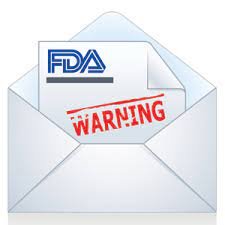Another FDA Letter is Harbinger of Increased Enforcement in 2023
Howard Dorfman has captured the flavor of the current regulatory environment in the blog below based on the first two enforcement letters issued to date in 2023. He underscores that OPDP remains vigilant in its review of promotional materials and is focusing on analyzing both data and study design to determine if any FDCA regulations have been violated. The opportunities for further agency enforcement activity will likely increase. Read Howard’s perspectives below.
Over the last several years, criticism has been levied against the FDA for the noted decrease in the number of enforcement actions brought against the pharmaceutical industry, particularly in the form of Warning and Untitled letters. Even taking into account the agency’s focus on developing responses to the COVID-19 pandemic, the relative decrease in the number of letters issued had raised questions regarding FDA’s enforcement agenda. For example, the June 7th issuance of an untitled letter to Xeris Pharmaceuticals for promotional activities for its high cholesterol drug, Recorlev (levoketoconazole) was the first untitled letter released by OPDP in 12 months. The question was whether the Xeris letter was a “one-off” or a harbinger of an uptick in regulatory oversight.
A possible answer came on August 15th when FDA posted a Warning letter to AstraZeneca for its promotion of Breztri Aerosphere. The letter states that an AstraZeneca sales aid made “misleading” claims about the effect of the inhaler on all-cause mortality. In particular, OPDP pointed to the inclusion of a “prominent headline claim” in the offending sales aid regarding the purported difference in time to all-cause mortality between the Breztri and control cohorts in a chronic obstructive pulmonary disease (COPD) clinical trial. In support of these claims, the sales aid cited data from two earlier published studies. However, the agency stated that “[t]hese claims and presentation, in the context of a promotional communication describing the safety and efficacy of Breztri, are misleading because they suggest that Breztri treatment has been shown to have a positive impact on all-cause mortality and reduce the risk of death in COPD patients…These suggestions are not supported by the cited references.”
The FDA had additional problems with claims made based on a secondary endpoint of one of the cited studies showed that the risk of death was significantly lower with Breztri when compared to therapy with only two of the three active ingredients in the AstraZeneca drug. As noted in the Warning letter, “the trial does not allow for any conclusions to be drawn from the [all-cause mortality] data”, leading to the conclusion (and articulating the reason the enforcement action was in the form of a Warning letter) that the “claims and presentation are concerning from a public health perspective because they overstate the efficacy of the drug and misleadingly suggest that Breztri will have a positive impact on [all-cause mortality] and reduce the risk of death in COPD patients.”
What can we learn from the limited data supplied by the two enforcement letters issued to date in 2023? First, the issuance of these letters indicates that OPDP remains vigilant in its review of promotional materials and is focusing on analyzing both data and study design to determine if any FDCA regulations have been violated. Second, the opportunities for further agency enforcement activity will likely increase.
Howard, Founder of H.L. Dorfman Pharmaceutical Consulting, is an expert in FDA regulatory law, fraud and abuse, compliance programs, and risk management procedures. He is also author of the Practicing Law Institute’s Answer Book on Pharmaceutical Compliance and Enforcement, and a Visiting Distinguished Professor at Seton Hall Law School.

